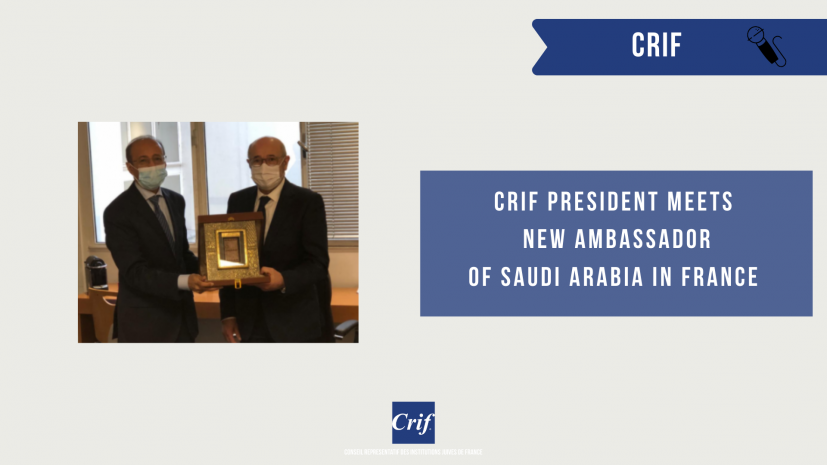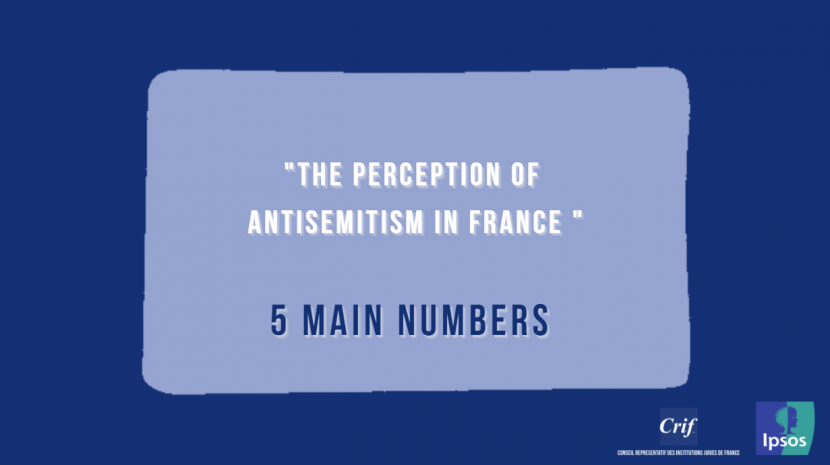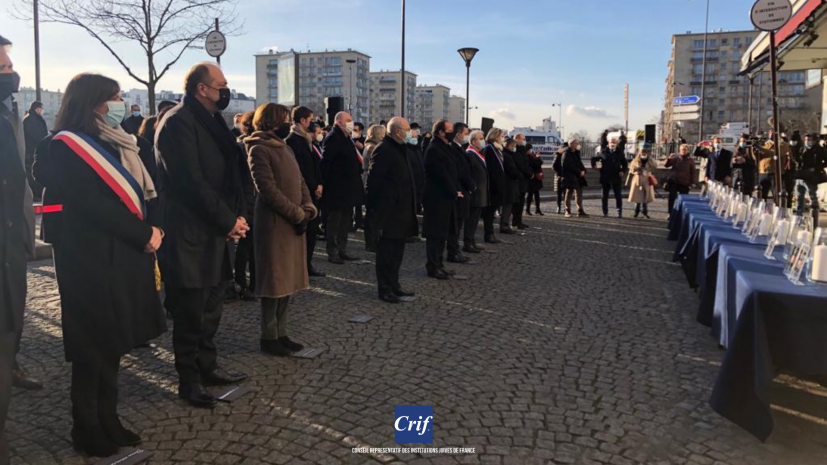News feed
Yom HaShoah - A time for remembrance
|
08 April 2021
Crif - Paris city council adopts IHRA's definition of antisemitism
|
23 February 2021
Crif - Crif President meets new Ambassador of Saudi Arabia in France
|
23 February 2021
Crif - Poll: "The perception of antisemitism in France", 3 main numbers
|
23 February 2021
Crif - Hyper Cacher 2015 terrorist attack: tribute to the victims
|
29 January 2021








